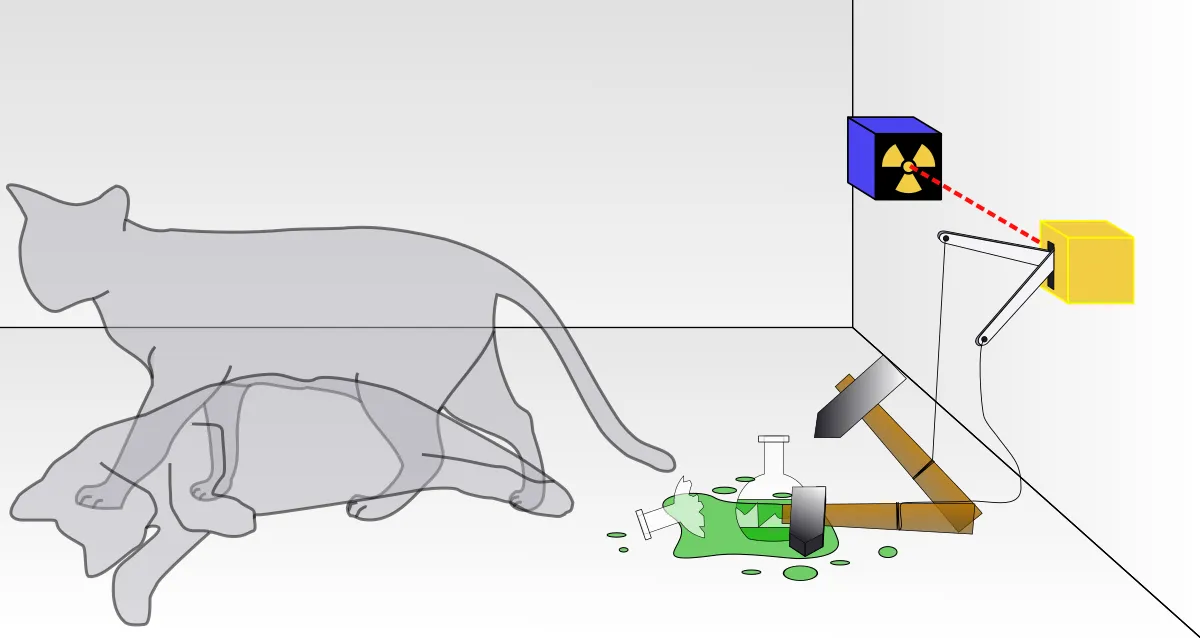Scientists have managed to transport information from one place to another, or rather teleport it. And all this without the information having to cross real space. Until now, many scientists thought that the teleportation of objects or even the teleportation of people was against the laws of physics. But some scientists have taught that nothing is impossible thanks to quantum physics and have shown us that the old dogmatic school science will soon be history with its outdated thought patterns. Now scientists believe that in the distant future even humans can be transported in this way. But it is still a very long way to "Beam me up, Scotty".
Let's imagine that we will be able to teleport across the world at some point. Would that really give us more time?
Through quantum physics we know that atoms can behave like particles or waves. This fact makes us doubt everything. An atom is what we all consist of. The particles are solid. Which one also recognizes by the fact that one can touch these things. But a wave is not solid. Imagine the atoms can take on the property of being a wave. So an object could have atoms with wave properties. So it would no longer be solid and tangible. Only this fact makes the teleportation even possible, doesn't it?
According to quantum physics, every object is both: particle and wave. Only by an observation, a measurement, one knows whether one has a particle or a wave infront of his view. The following example by Schrödinger fits it very well.
He describes this phenomenon as follows:
Imagine, a cat is put into a box. In addition, a radioactive device, a geiger counter, a hammer and a bottle of prussic acid come into the box. In the course of an hour one of the radioactive atoms can decay with a certain probability. But it doesn't have to. If it disintegrates, the geiger counter becomes active and gets the hammer going, which smashes the bottle with the hydrocyanic acid and in this case the cat would be dead. So the whole construction could kill the cat within an hour. But we don't notice anything. Unless we look. Now as long as you don't look, you don't know what happened. So the cat can be dead and alive. Maybe all went as it should and the cat is dead. But the whole scenario doesn't have to happen, but it can. For us the condition of the cat would not be defined. Only after you look at it, the cat is clearly either dead or alive. In quantum physics, things only happen through observation. So they have no state, until we will look at them.
With this fact arise different questions in one. What is nature really like? Independent of us? Independent of the fact that an intelligent creature wants to look at it? Would the world exist if no human, no being, no consciousness existed?
It seems as if nature only works for us and only accepts an understandable system when we are so curious and ask for a system. Do we first give nature a form with the sciences?
The thought of teleportation, that man is broken down into his molecules, which are then sent quantum mechanically to another location and reassembled there, is already fascinating, as Captain Spock of Star Trek would say, isn't it? The capacity of data storage in the world is increasing from year to year. If this continues, in the distant future the amount of data a human being consists of, i.e. 64 dot 10 to the power of 28 elementary particles, could be stored. For the transmission of the data, however, one would need tens of thousands of times more energy than was previously consumed all over the earth. Maybe we will be able to solve this problem in a way, also in the future.
The following is also interesting: If one could really store the informations of a the body of a human being, which consists of unbelievably many elementary particles, what about the soul or spirit of the human being? Would the soul then just come with us?
But what I personally find very strange is that such ideas and visions of the future are presented very early in movies and then later also invented by people. How do you come up with such realistic technologies in most movies that can be achieved in the distant future? In the movie Star Trek the captain beamed himself for the first time in the year 2151, in the time of the movie. Some experts find this date quite realistic for a teleportation at the same speed of technological progress.
I also don't understand the constant increase of technology in general. The products that are offered to us really do become better in a short period of time, so that you think about whether they have the technology for the next ten to twenty years and only give us a small step forward in order to make money in the long run?
In any case, you should consider whether such a high technology is positive at all. We have observed that in ten years the technology alone will come a long way.
Can you even imagine how people will live in the next 10,000 or 100,000 years?
How far can technology go?
At this point we should perhaps think briefly of the movie matrix...





